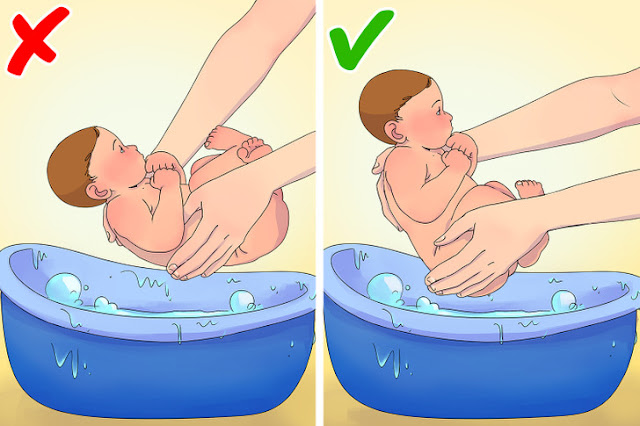10 Baby Care Tips
If you are a new parent, there are many things that you have to learn very quickly. Children learn new things every day. So you need to be at your best and gather all possible knowledge and information so that your child is always safe and looked after.
1. Let the child decide how much and how fast to eat.
When the baby begins to switch to solid food, it is best to allow him to develop his own phase and the amount of food he wants to eat. To achieve this, the child can sit with the family when he eats, and they should be offered the same food as the others. Also, it is advisable that the child is encouraged to feed himself from the start.
2. Share the room for the first year, but not the bed.
To keep your baby safe, it is best to put him in his crib. This way, you avoid putting them at risk of any sudden involuntary movement on your part. Also, it is best to avoid the use of large blankets or pillows in the crib so that he or she has room to breathe calmly while sleeping.
3. Every two nights, rotate your baby's head when he puts him to bed.
Once your baby is acclimated to his bed, experts recommend switching the position in which he sleeps. Every night you should try to blend it and rotate the position of his head. First, to the right, then to the left, and so on. This will help avoid a flat spot on one side of their head.
4. Play games with them, such as "hide and seek."
Point out something they can quickly identify and try to hide it and see if they're curious to know where that thing is. Ask them where the thing went and make it a game of "hide". Notice if your child is more willing to find it.
5. Wash your baby once or twice a week.
It is recommended that you only clean your baby on the spots where he gets dirty, and take a proper bath only twice a week because bathing frequently can dry out your baby's skin or trigger a rash or itchy skin.
6. Take time for your child to safely face the window.
When your baby is 3 months old, his development is of paramount importance. This is when their view of the world and their surroundings begins to develop. That is why it is recommended to help them gain a new view of the world by facing them safely through a window each day.
7. Pay attention to your child's response to loud and sudden noises.
When there is a loud noise near your child, or if you drop a huge plate on the floor and it surprises you, look at your child. If they get startled too or jump, it's a good sign to know that your child's hearing is healthy. If they don't jump, see your pediatrician and show your concern.
8. Clean your child's gums and teeth as soon as they start showing signs of broken teeth.
When your baby is 5 to 9 months old, his teeth usually begin to appear. This is the first sign that you can start brushing his teeth. When doing this, be sure to gently and gently rub his gums. When you realize they can tolerate a toothbrush, gently try to incorporate it into your routine. Avoid using toothpaste until your baby is about 18 months old.
9. Give them some space to help pass the tantrum.
Sometimes your baby can wake up in a strange mood and you can try everything from feeding him or playing with him, and it just won't go away. If you can't find a way to hide the tantrum, just respect the mood they are in and wait for it to pass on its own. Just give them a little space and be aware so they feel safe with you.
10. When bathing, put your baby's legs in the bathtub first.
When taking a shower, there are a few important things to keep in mind. First, as it may seem obvious, never leave them alone in the water. And secondly, when putting your baby in the water, put his feet up first so that he can acclimatize to the temperature of the water. Then slowly introduce their legs, always holding them. When they are already in the tub, help them sit up and then lie down on a non-slippery surface of the tub.
Do you have more baby care tips for other parents? Feel free to share it in the comments below.

